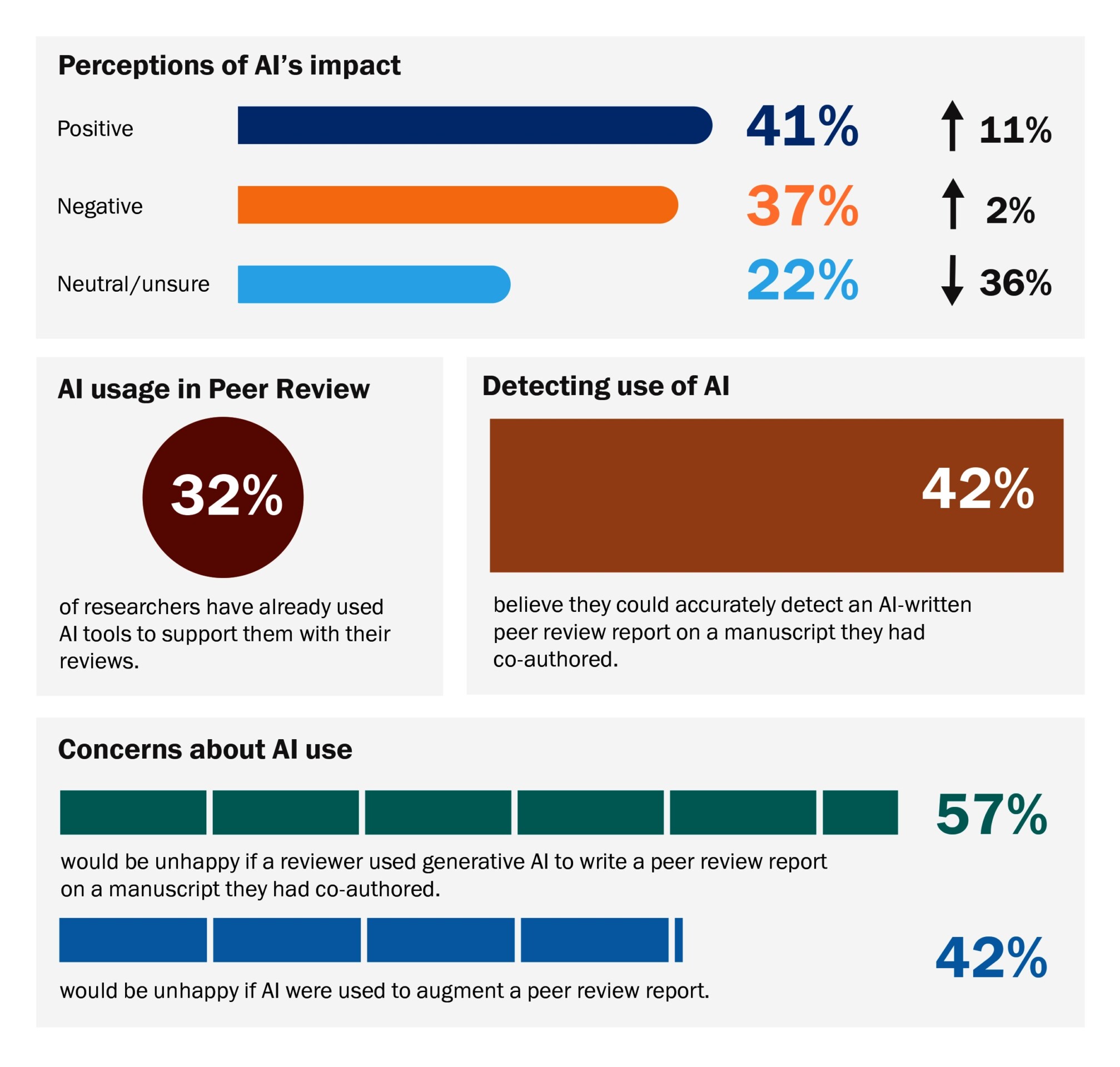
AI and Peer Review 2025
Insights from the global reviewer community
Introduction
The last few years have seen a rapid increase in the use of consumer generative AI in almost all industries. Large language models (LLMs) are now easily accessible to anyone with an internet connection and are being used in a variety of ways. Their potential role in peer review, however, raises a several of ethical and practical concerns.
Currently, IOP Publishing’s policy does not allow the use of AI in peer review as generative models cannot meet the ethical, legal, and scholarly standards required. At the same time, we acknowledge the potential of AI to support and improve aspects of the peer review process.
This report follows our 2024 State of Peer Review Report in which we surveyed 3046 physical sciences researchers. It included two questions on AI in peer review: One asked: “In your opinion, what impact will open-source generative AI tools, such as ChatGPT, have on the peer review process?”, and the other provided a free-text field for respondents to elaborate on their rating. Responses revealed that views were very polarized: 35% of respondents believed generative AI would negatively impact peer review, 36% were neutral or did not foresee any impact, and 29% anticipated a positive effect. Free-text comments ranged from suggestions that AI could help with plagiarism detection or language editing, to comments such as: “AI is evil, burn it with fire!”
Given the pace of change in this field, we wanted to take a closer look at how researchers in the physical sciences currently view the use of AI in peer review and whether the polarized views we saw in our survey from 2024 have coalesced, become more polarized, or remained unchanged. Here you can read the outcome of our latest report: AI and Peer Review 2025 – Insights from the global reviewer community.
Key findings:
We see that while AI adoption is rising, views on its future impact are becoming more polarized, not less. It also appears that neutrality is giving way to stronger opinions, suggesting that researchers are increasingly aware, but divided, about AI’s role.

Contributors

Laura Feetham-Walker, Reviewer Engagement Manager

Eden Brent-Jones, Developer

Emma Chorlton, Reviewer Engagement Officer

Miriam Dixon, Reviewer Engagement Officer

Anna Coombs, Associate Marketing Manager

Sian Powell, Marketing Manager

Faye Holst, Communications Manager

Kate Giles, Communications Officer